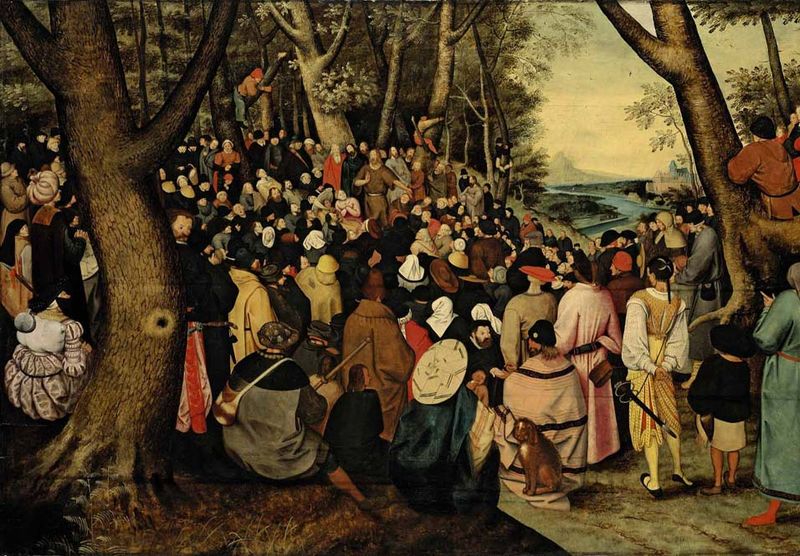
The concluding chapter of Paul's epistle to the Romans notes that the Old Testament has on-going significance for God's people (“whatever was written in former days was written for our instruction”). When people take this to heart, God's Word causes “steadfastness” (an ability to patiently endure trials) to take root in their lives.
By the encouragement which they offer, the scriptures give believers hope, a key Advent disposition. Christians know that God will not allow this hope to be disappointed. For their hope is rooted in what God has already done through Christ, who confirmed the promises God made to the patriarchs. Christians trust that God's saving deeds in the past will continue into their day and even be surpassed in the final intervention for which they long, Christ's return in glory at the end of time.
Israel's experience with the sins and limitations of the kings who ruled over them led them to hope that one day an ideal kingdom would be established. They hoped that the ideal ruler to come would be blessed with multiple gifts of the Spirit: wisdom and knowledge in perceiving the proper course to be followed, ability and resolution in carrying out the divine plan, and a reverent piety undergirding his every activity so as to overcome adversity (“his delight shall be in the fear of the Lord”).
Isaiah's oracle foretold a period of Eden-like existence. There violence would cease, wild animals become tame, and the whole earth be filled with the knowledge of God. How this would take place became the subject of a great deal of theological reflection through subsequent ages. Speculation quickened when, centuries after Isaiah proclaimed his prophecy, John the Baptist appeared on the scene proclaiming the imminent fulfilment of Israel's longing.
The Baptist came in the guise of Elijah, the forerunner of God's intervention to bring about a new world order (“John wore clothing of camel's hair with a leather belt around his waist, and his food was locusts and wild honey”). He heralded the arrival of God's Kingdom in the person of someone “more powerful than I”. This coming one would baptize people “with the Holy Spirit and fire”.
Now God's Kingdom should not be understood statically, but rather dynamically. For the “kingdom of heaven” is not principally a territory or group of people over whom God is sovereign. Rather the kingdom of God implies that God is actively ruling over or in the lives of people. What Israel expected of the ideal king only God can bring about. God does this through the way of life Jesus teaches and through the Spirit Jesus pours out on His followers.
How does God rule in people's lives? The human disposition required for entry into the new idyllic era, John said, was repentance (“Repent, for the kingdom of heaven has come near”). Without a change of heart, the Baptist stressed, doom awaits sinners (“even now the axe is lying at the root of the trees; every tree therefore that does not bear good fruit is cut down and thrown into the fire”).
In Greek literature “repent: meant simply to “change one's mind” and could refer to a change from a good purpose to a bad as easily as from a bad purpose to a good. In the New Testament, however, it means turning from an evil way of life to a new pattern of living, embracing a moral purpose for one's behaviour. If a person were truly repentant, the evidence of conversion would become manifest in his or her life (“bear fruit worthy of repentance”).
John the Baptist described himself as “the voice ... crying out in the wilderness”, urging paths be made straight for the Lord. One expects to hear a voice shouting out in cities or towns, where people live and sin exists. Because Israel had been purified in the desert before entering the Promised Land, any renewal of Israel could be conceived as taking place “in the desert”.
 |
| Pieter Paul Brueghel II (1564/5-1637/8), The Preaching of St. John the Baptist in the Wilderness |
* * *


Almighty and merciful God, may no earthly undertaking hinder those who set out in haste to meet your Son, but may our learning of heavenly wisdom gain us admittance to his company. Who lives and reigns with you.
No comments:
Post a Comment